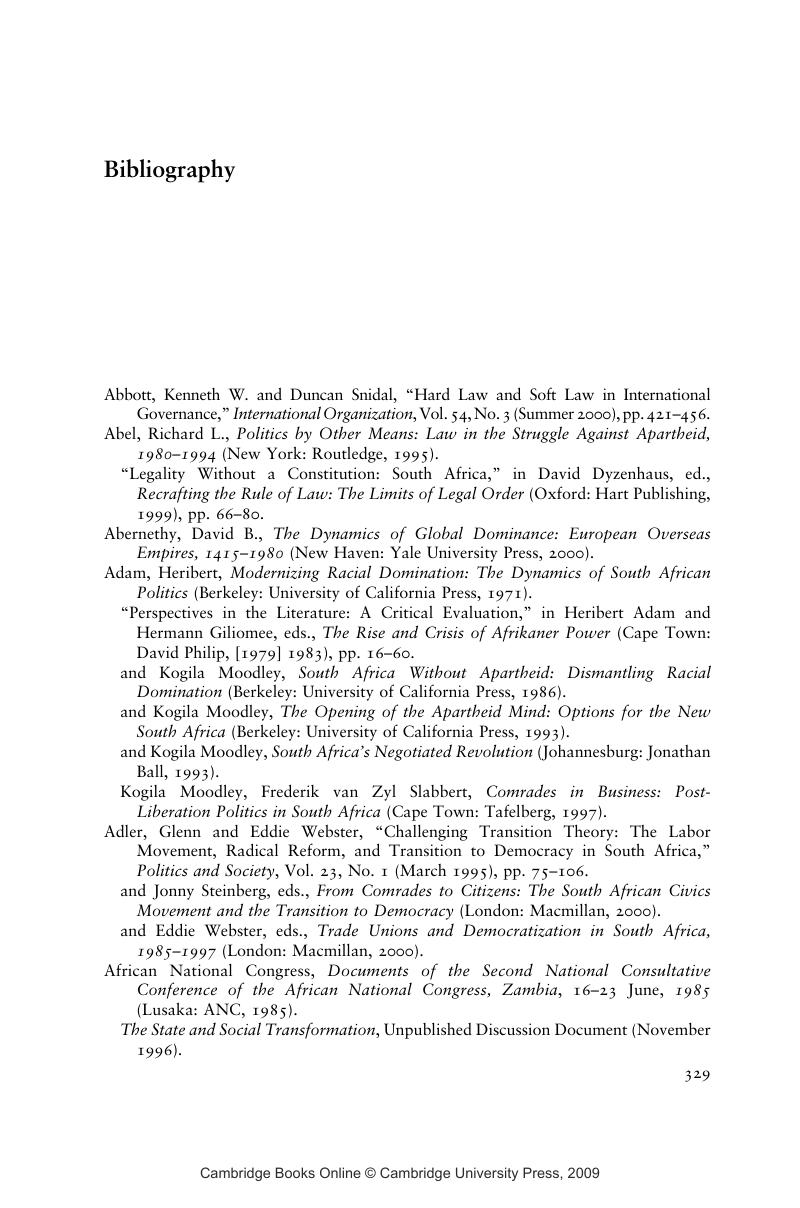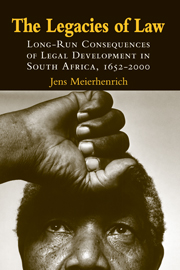Bibliography
Published online by Cambridge University Press: 18 December 2009
Summary

- Type
- Chapter
- Information
- The Legacies of LawLong-Run Consequences of Legal Development in South Africa, 1652–2000, pp. 329 - 368Publisher: Cambridge University PressPrint publication year: 2008



